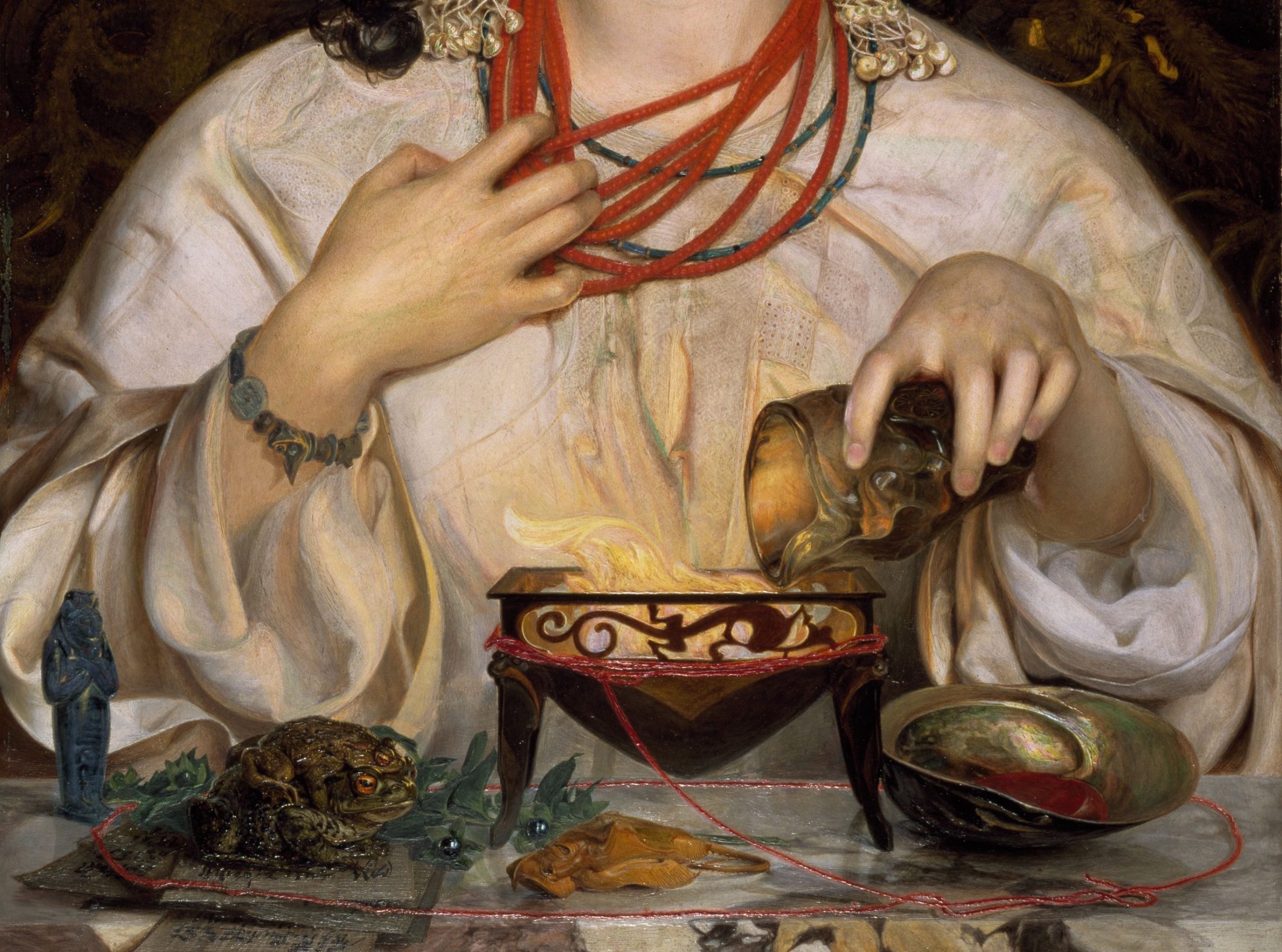Reading Lists
8 Magical Novels by Women Writers
Ashleigh Bell Pedersen, author of "The Crocodile Bride," recommends stories of wonder and darkness

My absolute favorite stories are ones that suggest magic is not just adjacent to our lives, but that it threads its way through our lives. That magic is, in fact, just on the other side of our ordinary existence—if we know when and how to seek it.
Magical stories have shaped my writing over the years, and I find myself bored when my stories veer too closely to realism. My novel The Crocodile Bride tells the story of Sunshine Turner, an eleven year-old girl growing up in the fictional village of Fingertip, Louisiana. To cope with her father’s declining mental health and the boundaries he crosses with her body, she turns to a magical story she’s grown up hearing from him. Deep in the woods that surround Fingertip lies the Black Bayou, where there lives a woman with healing hands and the dangerous crocodile who loves her. Initially, the worlds of Fingertip and the Black Bayou exist side by side—but as the summer drags on, the two grow increasingly intertwined.
This reading list includes novels I love, and novels that—whether through fairy tale, ghosts, heightened worlds, or even heightened prose—marry the wonder and darkness of magic to our mundane, everyday lives. For me, there is no more delicious reading experience than exploring the ordinary through the deeply extraordinary.
The Snow Child by Eowyn Ivey
Ivey’s first novel is a fairy tale about the arrival of a mysterious little girl at the homestead of a lonely, middle-aged couple in Alaska. The story is compelling and moving, the writing gorgeous, and the ending is perfect. I love the way Ivey explores not only the way Faina’s magical appearance enhances Mabel and Jack’s lives, but the way her presence invites them to discover wonder in the ordinary: in friendships, and in passing seasons.
Circe by Madeline Miller
Circe is set in the world of the Greek gods, and tells the story of our heroine’s journey from her upbringing as the daughter of narcissistic Helios and Perse, to her life as an exiled sorceress. It explores themes of love, connection, family, and solitude—to name a few—but what I found most moving of all was this novel’s exploration of mortality through the lens of immortality. So much of Circe’s journey is about her relationship, not to magic, but to the ordinary aspects of life that magic cannot touch. It is a stunning read, one I think about often.
The God of Small Things by Arundhati Roy
Fraternal twins Estha and Rahel are young children in India, mired in games of the imagination, when they witness an unspeakable tragedy. This novel interweaves the storyline of their eventual reunion as adults and the event that divided them in their childhood. It’s also an exploration of oppression, specifically in the context of India’s longstanding caste system and the aftermath of British colonialism—but its focus is the impact of these larger problems on the lives of human beings, and on the innocent. The magic in this novel exists primarily through the eyes of children—in one moment, for example, they watch as a little girl rises from her coffin to perform a cartwheel—but we also sense a kind of magic in the lush, wondrous prose, which seems to lift the internal worlds of each characters into some strange otherworld. I have never read anything quite like it, and my copy of this novel is so tattered from re-reads that the pages are barely attached to the spine, and it’s entirely missing its cover.
Kindred by Octavia Butler
Kindred’s Black protagonist, Dana, finds herself somehow traveling back in time to the antebellum South, where she encounters her ancestors and must make a critical decision that will impact generations to come—including, of course, her own. Butler’s writing makes visceral both the violence and degradation of the enslaved people Dana encounters (and of which she becomes subject to herself), along with the perpetual sense of danger that infiltrates every corner of their lives. In this novel, magic serves as a portal to the horrors of slavery and its continued impact on the generations that have since followed. It is a painful but illuminating read—not to mention impossible to put down.
The Tiger’s Wife by Téa Obreht
In The Tiger’s Wife, a young doctor named Natalie travels to collect her deceased grandfather’s belongings from his hometown of Galina. Along the way, we learn of two myths connected to her grandfather: that of the Deathless Man and of the Tiger’s Wife. Obreht walks the line between fact and fiction beautifully; it’s never quite clear what is fable and what actually happened. The magical scenes in this novel have haunted me for years, particularly one in which the pragmatic grandfather character encounters the Deathless Man on a hotel balcony as the war looms nearby. I won’t give anything away, but it is a stunningly moving scene in an equally moving novel.
Beloved by Toni Morrison
A stunning, compelling story about a woman whose murdered child haunts her, Beloved explores the intertemporality of our present lives and past traumas in our personal lives and in our society. At times the story veers into such dark territory that I found myself hopeless, but Morrison’s ending offers a path of healing for her characters. What’s rightfully unsettling is the way white people play no part in that redemption; instead, we are left with the horror and culpability of ourselves and our ancestors. After reading the novel, it’s difficult to ignore the fact that if long-distant trauma can so easily resurface in our present lives, so too can our actions and inactions.
The Children’s Bible by Lydia Millet
This gutting novel tells the story of a group of children left to their own devices while on vacation with their preoccupied, alcoholic parents one summer. Although the narrator is a young girl, her style of narration feels collective—we read the story of not just her and her little brother, but all of the children in this large, rambling, chaotic group. The novel’s heightened world feels like one in which magic is possible—but as Millet skillfully moves us through the novel, we experience not magic but horror. It is a kind not specific to the world of the story, but rather one that threatens our own very real lives in our own very real world.
The Little Stranger by Sarah Waters
In this fantastic, terrifying ghost story, the dreadfully ordinary Dr. Faraday becomes increasingly entwined in the lives of the Ayres family and their aging, haunted English estate, Hundreds Hall. In addition to the perfect plot and gorgeous writing, Waters evokes Brideshead Revisted-esque insight into changing social values. Even more impressively, she explores more personal themes around the darkness we choose to acknowledge or ignore in our past, our present, and ourselves.









